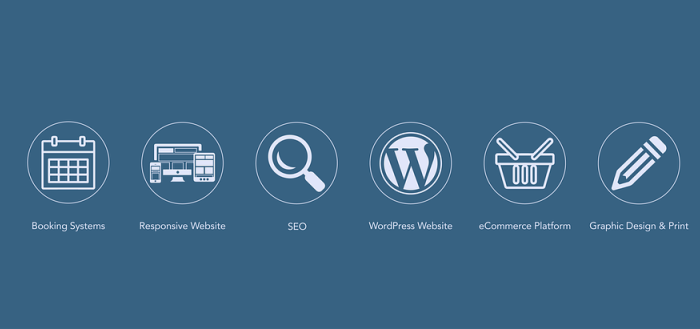
Most of the world nowadays live online. Today if you are running a business, chances are you have felt the need to start marketing online through a website and take your business a step further into the world of e-commerce. Or maybe you already have your website and are planning to add e-commerce functionalities to it. Either way, you need to set up an e-commerce Content Management System (CMS) for your website.
Dedicated CMS systems for e-commerce are available but are usually very expensive. However, we have two options available in the market, both of them open-source and therefore free: Magento and WordPress. Even small businesses can, therefore, use these to create and manage an e-commerce system without putting a significant strain on their resources.
Magento is a platform designed specifically for e-commerce, the entire objective of it is to design and operate an online business. WordPress, while not an e-commerce platform, can be used to create an e-commerce system with the help of dedicated plugins. You can use either of these to create an e-commerce CMS system for your website, but your choice at the end of the day will depend on your requirements.
In the following article, we shall take a look at the main differences between the two platforms Magento and WordPress for e-commerce, with attention to security and SEO performances. We shall also discuss the scope of using both of them together in combination.
Overview: WordPress and Magento
Magento and WordPress are both robustly built open-source platforms which can be used for a similar purpose, but they are as different from each other as apples are from oranges. In layman terms, Magento is designed to build and run online stores, while WordPress is designed to deal with more text-heavy content like blogs. Thus, Magento has e-commerce features like displaying products, customer account support, shopping cart features, etc. built-in, and needs special plugins to support blogging. Conversely, WordPress primarily has blogging functions and can be extended into the online store territory with plugins like Woocommerce.
Development: WordPress and Magento
Looking at these platforms through a developer’s eyes, another key difference becomes immediately apparent. Magento, unlike WordPress, is not designed to be easy to use and developer-friendly. It is far more advanced in terms of functionality and requires much greater programming than WordPress does.
On the other hand, WordPress is far more user-friendly and flexible, allowing even novice programmers to combine many different ideas to come up with something new. While creating an e-commerce system using WordPress, you can piece together many separate plugins to reach the same level of e-commerce capability of Magento. This, however, can put you in a bit of a spot; if any of these plugins fail, the entire website is liable to crash.
Security: WordPress vs. Magento
Both Magento and WordPress are mature platforms, meaning they have gone through years of updates and improvements. This makes the core code of both these platforms safe and secure for use in e-commerce.
The issue therefore, comes down to the various plugins, themes, add-ons, etc. In this aspect, Magento is a slightly more secure option for your online store since it is specifically built for the same purpose, but WordPress must compulsorily use separate plugins for it to support e-commerce.
SEO: WordPress vs. Magento
Standard SEO features are available in both Magento and WordPress, and these can be expanded upon as required with the help of relevant plugins. Other than this, WordPress, primarily being a blogging platform, is much more intuitively arranged for text and open to optimization. Simply select ethically scripted themes and install an SEO plugin, and you are ready to start on the more mundane aspects. However, Magento is a bit more complicated in this regard. Well written clean scripts are just as important, but due to text not being its primary focus, the other SEO aspects require more effort than in WordPress.
Combining WordPress and Magento
The platform you select will depend on your long term business goals. Clearly establishing your long term plans is particularly important if you are just starting an online business on your website. If you plan to mostly sell products online and build up your business, Magento should be your choice. If, on the other hand, you sell only a few items, and you are more focused on marketing content to grow your business, WordPress is your answer. As you may have by now guessed, you can use both Magento and WordPress together. These are not conflicting platforms, and can, therefore, be used simultaneously for building the e-commerce system for your online store. Magento can be used to primarily manage the design and the online store itself, while WordPress can be used to focus on digital marketing and blogging features. In fact, certain companies actually offer some benefits to websites that use Magento on the online store management system integrated into the WordPress website.
So there you have it, a succinct analysis of the key differences between Magento and WordPress to build and run the e-commerce system for your online business. The final choice will depend on your business pattern and objectives, as well as your long term business goals.
